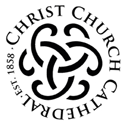All Hallows' Eve
~Fr. Michael
All over America, Halloween is a day for children to dress up, have fun, and get lots of treats from indulgent neighbors. Skeleton suits and zombie makeup are all in fun. Some like to point out that the origins of this festival are not as fun, but have dark and sinister roots: such as the Celtic Samhain festival and other pagan rites designed to blur the line between dead and the living, or to make sure the dead stay dead. Perhaps people who sentenced women to burn to death should be more horrifying to us than little girls running about in black dresses and pointy hats for a goof.
Blurring distinctions between the living and the dead raise horrifying issues. To begin with, it calls into question what life and death really are. Zombies and vampires are very popular today as creatures haunting us with this blurred distinction. The idea of being “undead” is a haunting but, somehow attractive thought for some.
Rites of and against the dead, encountered by anthropologists worldwide, express fear that the dead envy the living and, if they get a chance to break into the land of the living, they will destroy the life we cherish. That is, the dead are set up as rivals for life that has been made scarce. These anxieties speak of depth of rivalry experienced with other people, that we see them continuing even after death.
Christians have always had a different view: The Crucifixion of Jesus is followed by his Resurrection. The Risen Jesus appears not as a vengeful ghost but the forgiving victim; this opens up a whole different understanding of the dead. Christian martyrs who gave up their precious lives to witness to Christ were believed by the early church to be, not vengeful ghosts, but saints in Heaven actively seeking our good. Dante’s Divine Comedy is a particularly powerful vision of those living on earth and those living in Heaven supporting each other in prayer without resentment or rivalry. The walls of ancient cathedrals are full of images in tile or glass or fresco of those who have gone before us worshipping at the same altar.
For us, Halloween, or Hallowe’en, is the beginning of the great feast of the Church, All Saints’ Day which celebrates the victory of God in the final resurrection of his servants. Our forebears in England kept the feast as All Hallows’, and the night before, the eve or even which began the feast was a time of reflecting on God’s final victory over the forces of evil, through those whom he has called to be his saints. A good reflection for our modern times, whether we keep our porch light on or off on October 31st.

